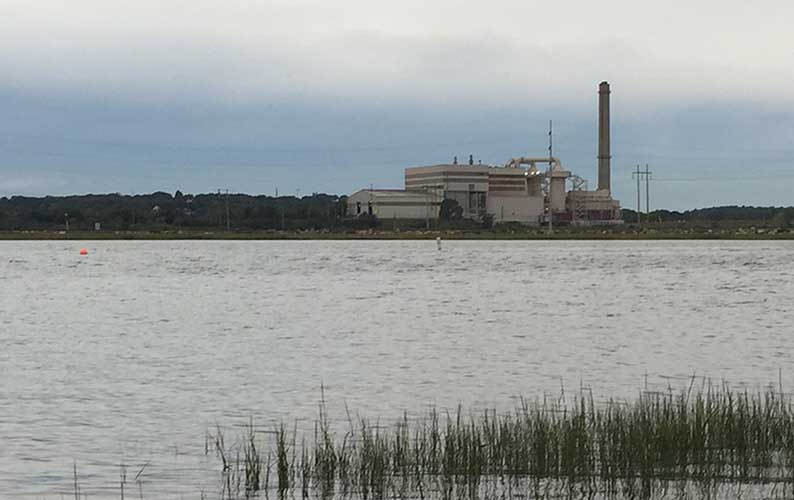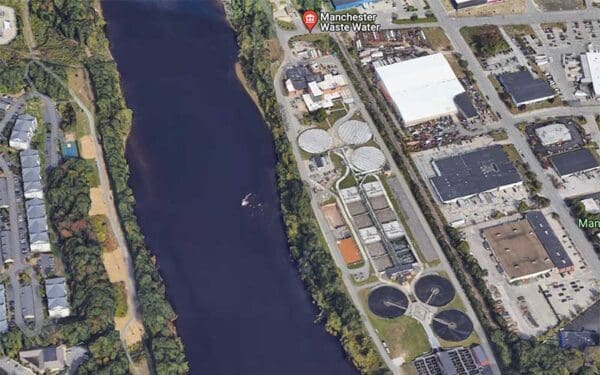
Wheelabrator is ignoring input from the local community in its effort to expand its already massive and dangerous ash landfill in Saugus.
In May, CLF argued our case against a polluting ash landfill in court, asking a judge to halt the site’s expansion until the local community’s concerns about its environmental and health impacts have been heard.
The Massachusetts Department of Environmental Protection (MassDEP) has already granted Wheelabrator a permit for the massive expansion of its Saugus landfill. But in going straight to the state agency for this permit, Wheelabrator skipped a critical step: It failed to go through a legally required process with the Saugus Board of Health that would have allowed the town body to evaluate the potential threat such an expansion would pose to the environment and public health.
The Board of Health process is critically important to protecting residents and the environment. MassDEP and Wheelabrator can’t just ignore the local community and expand this landfill without any input from those who are directly affected by it.
No Landfill is Truly Safe, But the Saugus Landfill is Exceptionally Dangerous
Wheelabrator’s trash incinerator and ash landfill in Saugus, Massachusetts, puts residents and the environment at risk, which is why CLF is fighting for the local community’s right to assess the threats and take appropriate action. In May 2018, CLF appealed a decision by MassDEP to allow Wheelabrator to expand the capacity of its ash landfill by more than 500,000 tons, extending its operational life by an additional 5 to 10 years.
The landfill was supposed to close in 1996. Not only is it still operating 25 years later, but it is looking to expand even more.
Expanding the landfill will mean reopening two previously capped and closed stormwater valleys so they can be filled with ash. When capped landfill cells are reopened, the existing cover is torn off, and it becomes an active work area with heavy machinery. Previously buried ash becomes exposed to the air once again. It blows off the working face of the landfill as well as out of the trucks transporting the ash from the incinerator to the landfill.
Incinerator ash contains toxic substances like mercury, lead, and dioxins that are known to cause cancer and other severe health conditions. Ironically, the very technology meant to control the air pollution created by incineration makes its ash less safe – when toxic substances are scrubbed before they can be released in the air, they end up concentrated in higher amounts in the ash that’s left over and buried.
If that weren’t concerning enough, Wheelabrator’s landfill is surrounded by densely populated North Shore neighborhoods that bear the brunt of its pollution. It also sits in the middle of a salt marsh designated by the state as an Area of Critical Environmental Concern. And, even though it is vulnerable to climate change impacts like sea level rise and storm surge, the landfill does not have standard environmental protections like a liner and a groundwater monitoring system, which would help to prevent its polluted runoff from leaking into nearby waterways.
What’s more, until recently, there has been virtually no public process for any of the previous expansions in which CLF, our members, or the public could have participated.
Skirting the Law, Wheelabrator Shut Out the Local Community
Under state law, every solid waste facility in Massachusetts must receive a “site assignment” from the local board of health. The purpose of site assignments is to protect public health, safety, and the environment by comprehensively regulating the siting of solid waste facilities.
If Wheelabrator had followed the legal process, the Saugus Board of Health would have held a site assignment hearing where evidence about any potential threats the landfill poses to public health or the environment could have been presented. The Board of Health could have evaluated that evidence and determined for itself the level of threat the landfill presents and what conditions, if any, should be placed on the landfill to reduce those threats.
Local boards of health have this power because they are in the best position to protect their residents. They are “on the ground” witnessing the impacts of landfills on people and the environment. For that reason, MassDEP, which oversees operational permits for landfills, cannot issue a new or modified permit unless the landfill already has a valid site assignment from the local board of health. Issuing a permit as it did is simply illegal.
Holding Wheelabrator and MassDEP Accountable to the Community and the Law
Because the Board of Health was skipped, CLF and the public were not able to bring their concerns about the landfill to the Board. And the Board, in turn, was deprived of its authority to evaluate the threats and take action (if necessary) to protect residents and the environment.
We brought this case to ensure that residents and the Town have the proper forum to voice and evaluate concerns about such a massive landfill expansion. MassDEP and Wheelabrator cannot be allowed to ignore those whose lives are most directly affected by their decisions.




